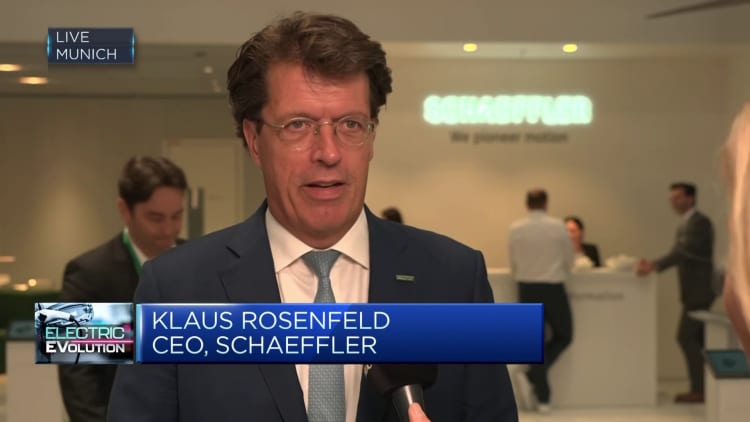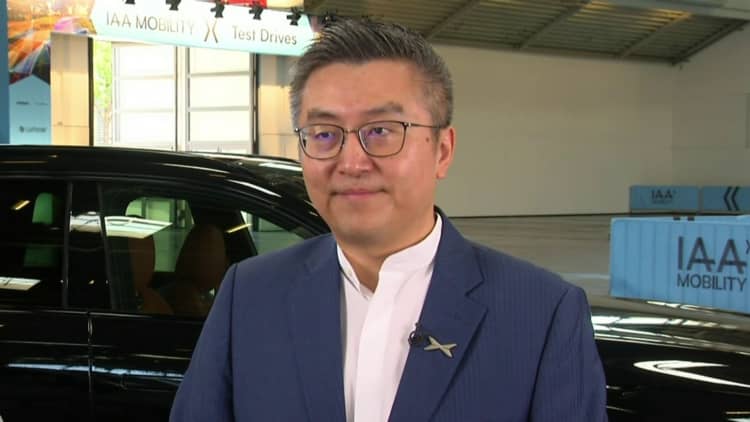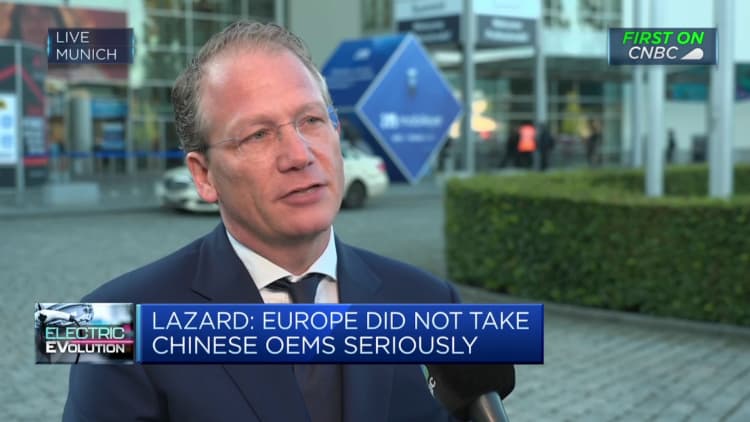A BYD Co. Seal electric sedan during the media day for the Munich Motor Show (IAA) in Munich, Germany, on Monday, Sept. 4, 2023.
Bloomberg | Bloomberg | Getty Images
Chinese electric vehicles pose “a real threat” to the European car industry, according to Christian Kames, managing director at financial advisory firm Lazard.
Kames spoke from the IAA Mobility Conference in Munich, where the number of Chinese companies has soared since the last event.
Around 40% of the presenters at the conference are from Asia, while the number of Chinese exhibitors in attendance has more than doubled from 29 in 2021 to 75 this year, according to IAA Mobility. There are almost 750 exhibitors in total, from 38 countries.

The increase in Chinese companies in attendance shows that these firms “really have the European market … as the next market they want to conquer,” Kames said.
The comments reflect those of Chinese automakers, who have stressed that Europe is a key part of their global expansion plans.
Warren Buffet-backed carmaker BYD launched its Seal electric sedan for Europe on Monday, while Leapmotor, which is based in Hangzhou, China, said its SUV would be available in Europe next year.
Similarly, Xpeng announced plans to sell its cars in Germany in 2024, after already entering the Norwegian, Swedish, Danish and Dutch markets.
“We recognize Germany is the most important and the highest standard market for all” carmakers, Brian Gu, the president of Xpeng, told CNBC in an interview Monday.
Swiss bank UBS has gone as far as to downgrade two major European automakers because of the threat posed by China’s broadening EV market.
European companies are ‘ready to engage’
European auto manufacturers are well aware of the competition brought about by Chinese companies, Christian Kames told CNBC.
“[European carmakers] get it now, that the Chinese [automakers] are a real threat. The question is what do they do about it,” Kames said.
“I don’t think we are still at the stage where they underestimate the Chinese,” he added.

Renault CEO Luca De Meo on Monday said that the French carmaker is continuing to ramp up its investment in new technologies, particularly in its new EV-dedicated unit, Ampere, which he believes puts the company in good stead against international competition.
“We think we have the argument and the confidence to [cut costs], it will take some time because Chinese OEMs, they started a generation before the Europeans because market conditions were different in China, so that’s the fight, and we are ready to engage,” De Meo told CNBC.
China’s advances in Europe’s electric vehicle sphere can also teach European countries how they can better crack into the Asia market, Chris Reitermann, CEO of Ogilvy Asia Pacific and Greater China, told CNBC’s Evelyn Cheng on Aug. 25.
“A lot of the multinational players, they struggle because they underestimated the huge, the speed of shift to electric, which is probably a good lesson in how multinationals need to run their businesses if they want to be successful in China,” Reitermann said in a video interview.

“A lot of those big car companies, they’re on the sidelines watching their market share destroyed,” he said.
“Now most of them realized that they probably will not be able to do it by themselves, they probably will not be able to succeed in China by themselves, that’s why you saw Volkswagen partner with Xpeng and I think you will see more of that where some of the local EV guys will partner with multinationals.”
— CNBC’s Arjun Kharpal, Evelyn Cheng and Elliot Smith contributed to this report.
